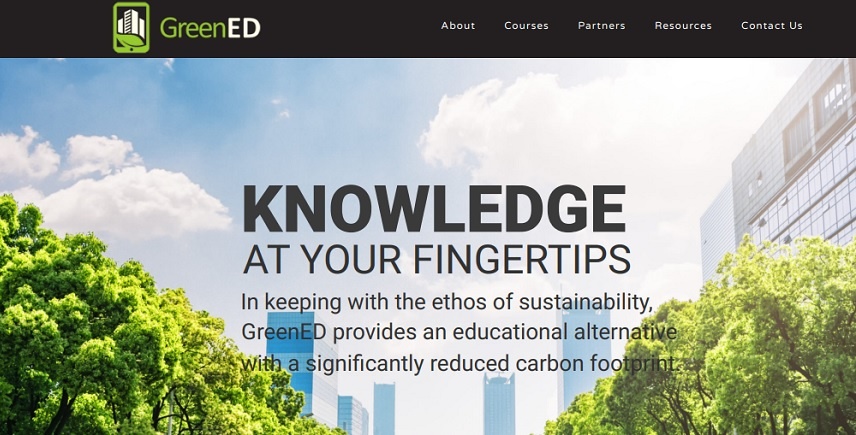South African startup GreenED has developed an online education resource for professionals and students who want to learn about sustainable, climate resilient design in the built environment and green rating certifications.
Founded in 2017 by Marloes Reinink, Michelle Ludwig and Karen Eicker, GreenED offers courses and webinars for continuing education credits and Green Star Building-related training. Its platform provides e-learning for individuals who need to stay at the forefront of knowledge and skills in their sector, and for companies who need to improve performance in the workplace.
“GreenED aims to respond to the needs of the African built environment, coupled with the rapidly-evolving digital transformation of the workplace, where businesses need to be agile, adaptable and at the forefront of their sectors on an ongoing basis in order to remain relevant and increase profitability,” Reinink told Disrupt Africa.
“We are committed to becoming the leading resource in Africa for green sector continuing education, technical information, and communication – the essential tools our customers need to be successful in the green built environment.”
The startup’s goal is to provide high quality education that is also convenient and affordable. Courses are offered primarily online via live webinars and on-demand playable modules for easy accessibility and cost-effectiveness.
Ludwig said the market for green buildings in South Africa had grown rapidly in the past 10 years, with an exponential growth of certified projects. With this trend likely to be maintained, the need for a solution like GreenED arose.
“In Africa, the green building market currently has a need for opportunities to gain knowledge on green design topics relevant to regional contexts: concepts, fundamentals, principles, technologies and application – both at beginner and advanced levels,” said Ludwig.
“Importantly, easily accessible information is needed on how to design and implement green systems, technologies and operations throughout the lifecycle of a project.”
This GreenED provides, taking the lead from models that have been successful internationally. Reinink added that an African solution was needed, as content from other regions does not export well.
“Primarily, the continuing education credits being offered are for very different registration bodies and for different certification tools. In addition, green building courses need to be contextually based in order to be relevant to, and meet the climatic and technical demands of, regional markets,” she said.
“Also, the cost of courses becomes expensive when paying in a foreign currency. And finally, many product manufacturers that support these courses internationally do not distribute their products in South Africa.”
GreenED, however, is a regional solution that meets the requirements and expectations of the African green building market. Self-funded to date, the startup is actively looking for partners and investors to help it scale, but has seen some initial traction in South Africa, where it has just over 2,000 subscribers, with about 320 courses taken so far. Additional markets are also being considered.
“We have had preliminary discussions with professionals in Kenya, Nigeria and Namibia, who have expressed interest in the opportunities and convenience afforded by online education for their respective green building markets,” Eicker said. “Our vision is to service the market throughout Africa, and to begin to offer courses to international practices and professionals who are expanding their footprint into Africa in line with the continent’s development needs.”


